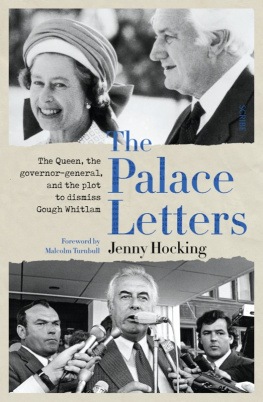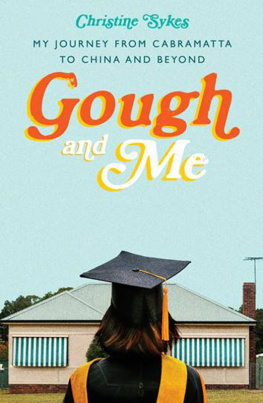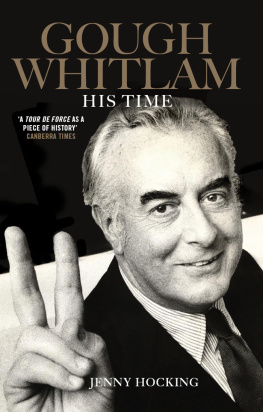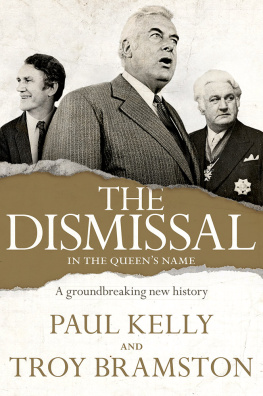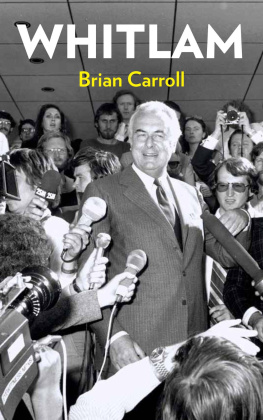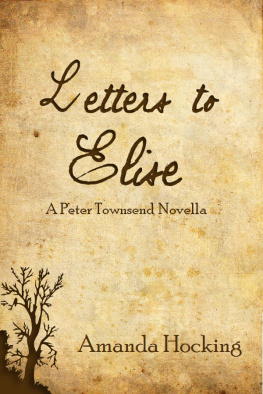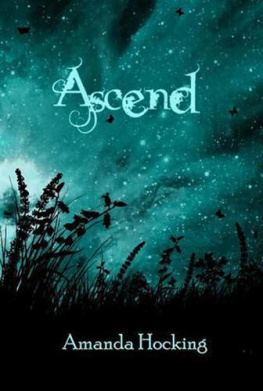Jenny Hocking - The Palace Letters: The Queen, the governor-general, and the plot to dismiss Gough Whitlam
Here you can read online Jenny Hocking - The Palace Letters: The Queen, the governor-general, and the plot to dismiss Gough Whitlam full text of the book (entire story) in english for free. Download pdf and epub, get meaning, cover and reviews about this ebook. year: 2020, publisher: Scribe Publications Pty Ltd, genre: Detective and thriller. Description of the work, (preface) as well as reviews are available. Best literature library LitArk.com created for fans of good reading and offers a wide selection of genres:
Romance novel
Science fiction
Adventure
Detective
Science
History
Home and family
Prose
Art
Politics
Computer
Non-fiction
Religion
Business
Children
Humor
Choose a favorite category and find really read worthwhile books. Enjoy immersion in the world of imagination, feel the emotions of the characters or learn something new for yourself, make an fascinating discovery.
- Book:The Palace Letters: The Queen, the governor-general, and the plot to dismiss Gough Whitlam
- Author:
- Publisher:Scribe Publications Pty Ltd
- Genre:
- Year:2020
- Rating:3 / 5
- Favourites:Add to favourites
- Your mark:
- 60
- 1
- 2
- 3
- 4
- 5
The Palace Letters: The Queen, the governor-general, and the plot to dismiss Gough Whitlam: summary, description and annotation
We offer to read an annotation, description, summary or preface (depends on what the author of the book "The Palace Letters: The Queen, the governor-general, and the plot to dismiss Gough Whitlam" wrote himself). If you haven't found the necessary information about the book — write in the comments, we will try to find it.
Jenny Hocking: author's other books
Who wrote The Palace Letters: The Queen, the governor-general, and the plot to dismiss Gough Whitlam? Find out the surname, the name of the author of the book and a list of all author's works by series.
The Palace Letters: The Queen, the governor-general, and the plot to dismiss Gough Whitlam — read online for free the complete book (whole text) full work
Below is the text of the book, divided by pages. System saving the place of the last page read, allows you to conveniently read the book "The Palace Letters: The Queen, the governor-general, and the plot to dismiss Gough Whitlam" online for free, without having to search again every time where you left off. Put a bookmark, and you can go to the page where you finished reading at any time.
Font size:
Interval:
Bookmark:

The Palace Letters
Jenny Hocking is emeritus professor at Monash University, Distinguished Whitlam Fellow at the Whitlam Institute at Western Sydney University, and Gough Whitlams award-winning biographer. Professor Hocking first sought access to the Palace Letters from the National Archives in 2011 and again in 2015, but was refused. Aided by a crowd-funded money-raising campaign, and a stellar legal team prepared to work for her on a pro bono basis, she then took legal action to gain access to the documents. The Federal Court rejected her arguments in 2018, and the Full Federal Court rejected her appeal against this decision in 2019. She appealed this decision in the High Court on 4 February 2020, and the courts judgment in her favour was handed down on 29 May 2020.
Scribe Publications
1820 Edward St, Brunswick, Victoria 3056, Australia
2 John St, Clerkenwell, London, WC1N 2ES, United Kingdom
3754 Pleasant Ave, Suite 100, Minneapolis, Minnesota 55409, USA
Published by Scribe 2020
Copyright Jenny Hocking 2020
All rights reserved. Without limiting the rights under copyright reserved above, no part of this publication may be reproduced, stored in or introduced into a retrieval system, or transmitted, in any form or by any means (electronic, mechanical, photocopying, recording or otherwise) without the prior written permission of the publishers of this book.
The moral rights of the author have been asserted.
Every effort has been made to acknowledge and contact the copyright holders for permission to reproduce material contained in this book. Any copyright holders who have been inadvertently omitted from the acknowledgements and credits should contact the publisher so that omissions may be rectified in subsequent editions.
9781922310248 (Australian edition)
9781913348472 (UK edition)
9781925938623 (ebook)
Catalogue records for this book are available from the National Library of Australia and the British Library.
scribepublications.com.au
scribepublications.co.uk
scribepublications.com
To my mother, Barbara Hocking
Reporter: Do you think the Queen knew about this course of action?
Gough Whitlam: I shouldnt think so, but I dont know.
Reporter: Do you think the governor-general took any advice from Buckingham Palace?
Gough Whitlam: I dont know. I dont know. I was not informed that he had.
11 November 1975
Contents
by Malcolm Turnbull
Chapter One:
Chapter Two:
Chapter Three:
Chapter Four:
Chapter Five:
Chapter Six:
Chapter Seven:
Chapter Eight:
Chapter Nine:
Chapter Ten:
Chapter Eleven:
Chapter Twelve:
Foreword
by Malcolm Turnbull,
prime minister of Australia, 201518
No less than Her Majesty the Queen was determined that the letters between Sir John Kerr and her private secretary should remain secret. By 2020, they were more than forty years old. If they had been cabinet documents, they would have been released in 2005. They concerned the greatest constitutional crisis in our history.
Had it not been for Jenny Hockings tenacity, they would have remained secret for years to come. One of the other actors in this drama was to say, I owe nothing to history. Certainly, history owes a great deal to Jenny Hocking.
I first became aware of the issue not long after the 2016 election. Professor Hockings application to the Archives for access to the documents had been rejected on the basis that they had been deposited on terms they should remain confidential until 2027 and that they were personal correspondence, as opposed to official government correspondence covered by the usual, timely rules for disclosure.
When I consulted the attorney-general, George Brandis, he told me that the Archives position was supported by legal advice from the then solicitor-general, Justin Gleeson. While I had great respect for Mr Gleesons erudition, I had no doubt that his advice must be wrong. The correspondence between the governor-general and the Queen is no more personal than correspondence between the governor-general and the prime minister.
However, it was very clear that the Queen, or at least her courtiers, were adamantly opposed to disclosure. Their concern, so we were advised, was not about the content of the correspondence, but that it could set a precedent for the disclosure of correspondence between Her Majesty and her viceroys in those remaining Commonwealth countries that, like Australia, retain the monarch of the United Kingdom as their head of state. Her Majestys position was that the documents should remain confidential until the earlier of 2027 or the end of the Queens reign.
When Professor Hocking challenged the Archives decision in the Federal Court, I had no doubt that she would be successful. That seemed to offer an elegant solution. There would be no need for the Palace to break its own precedent, nor would the Australian government be obliged to take issue with Her Majestys wishes.
While Justice Griffiths was considering the matter, I did explore the possibility of my formally advising Her Majesty that she should agree to release the letters. I was satisfied, however, that this advice would have been most unwelcome better to await the resolution of the issue in the Federal Court.
However, the elegant solution was denied us when Justice Griffiths found in favour of the Archives in March 2018. Again, I had no doubt this would be reversed on appeal. By the time the Full Bench gave its decision in February 2019, I was no longer prime minister, but its judgment was equally astounding. Two of the three judges upheld Justice Griffiths.
Happily, common sense prevailed in the High Court, and Professor Hocking was triumphant in May 2020. The elegant solution was finally presented, but not without considerable trouble and expense for Professor Hocking, for which we should all be most grateful.
The letters are fascinating because they give a contemporaneous account of Kerrs thinking during the lead-up to the constitutional crisis and his sacking of Whitlam. But they are acutely dispiriting as well. Kerrs sycophantic grovelling is stomach-churning. But, worst of all, they show him bringing the Queen and her private secretary into his confidence in a manner he did not extend to the prime minister of Australia.
This was Kerrs greatest mistake. He should have taken Whitlam into his confidence and set out the course of action he would be obliged to follow if, indeed, Whitlam was not able to secure supply. He did not do so, as he acknowledges, because he was worried that Whitlam would ask the Queen to sack him. Even if this apprehension was a realistic one, it was no excuse. Kerr, in short, put the retention of his own job ahead of his duty to be honest and open with his own prime minister.
For many years, Australian monarchists have argued that the governor-general is the real head of state, and that the Queens only role is to appoint, or remove, the governor-general on the advice of the prime minister. This correspondence shows the governor-general as an anxious country manager reporting back to head office, seeking not just approbation for, but guidance on, his conduct in a worsening political crisis.
The content of Kerrs letters did not surprise me, but the replies from the Palace did. I had expected Sir Martin Charteris would reply with little more than a brief, polite acknowledgement. That would have been the more tactful response. But, as Professor Hocking elaborates, Charteris and Kerr discussed the political and constitutional circumstances of the time in considerable detail.
Kerr had joined Prince Charles at independence celebrations in Papua New Guinea in September 1975, and had raised directly with Charles the possibility of Whitlam asking the Queen to sack him and appoint a more compliant governor-general. He was clearly seeking to find out what the Queens reaction would be, and the answer came back in a letter from Charteris on 2 October. The Queen would, Sir Martin, wrote, take most unkindly to it. There would be considerable comings and goings, but I think it is right that I should make the point that at the end of the road The Queen, as a Constitutional Sovereign, would have no option but to follow the advice of her Prime Minister.
Next pageFont size:
Interval:
Bookmark:
Similar books «The Palace Letters: The Queen, the governor-general, and the plot to dismiss Gough Whitlam»
Look at similar books to The Palace Letters: The Queen, the governor-general, and the plot to dismiss Gough Whitlam. We have selected literature similar in name and meaning in the hope of providing readers with more options to find new, interesting, not yet read works.
Discussion, reviews of the book The Palace Letters: The Queen, the governor-general, and the plot to dismiss Gough Whitlam and just readers' own opinions. Leave your comments, write what you think about the work, its meaning or the main characters. Specify what exactly you liked and what you didn't like, and why you think so.

